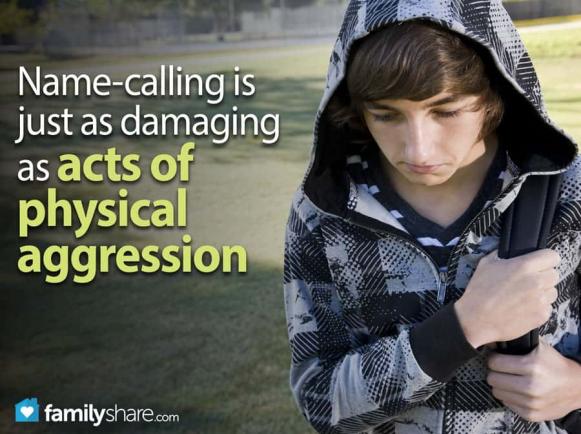
Bullying comes in many forms.
Telling a child he or she can't play causes hurt feelings, affects self-esteem and causes feelings of rejection. Name-calling is just as damaging as acts of physical aggression by a fellow classmate. There are ways to prepare and act before bullying takes place and steps to take if it happens:
-
Explain what it means to be bullied so the child can recognize it if it takes place.
-
Discussing with love that it is the bully's fault not the child who has been bullied and teaching him or her how to work with it help a victim of bullying overcome the anger or sadness they might feel.
-
Help the child build self-esteem. A bully is much more likely to bother a person who doesn't think well of himself, one who hangs his head, lacking confidence. The bully builds himself up by hurting others. He lacks self-esteem.
-
Compliment your child to help them feel good about himself or herself. Bring out the child's strong qualities, gifts and talents.
-
The student should stick up for himself by speaking directly and stating to the bully that he or she doesn't like it and doesn't have to take it.
-
Tell him or her not to give the bully what he wants: money, crying, whining, candy, etc. If you put quarters in a coke machine a can of pop will always come out. The bully will always make fun if the student continues to give the bully what he wants, if he always responds the same way.
-
A parent could tell the child to ignore, joke about it, to move on if possible.
-
The student should ask friends (if they have them) to rally in support of him or her.
-
Teach him or her to find crowds to be with.
-
Even a pre-school child may be a victim of bullying. A young student grabbed a toy from another child causing anger and hitting. The teacher said, "They are my toys and I share with everyone."�
-
Make sure the child knows who to go to for help: parent, older sibling, teacher, grown-up friend, other leaders. The victim should be specific when describing the abuse, "That boy is hitting me, calling me names or not letting me play, etc."�
-
If the adult doesn't listen, find one who will. Reassure the child that someone will listen.
-
Tell him or her, "You can come to me with anything."�
Often a child is teased because they look sad, or look picked-on or don't like themselves. Parents should teach their child to treat classmates kindly and courteously. Parents can help accomplish this goal through their example of courteousness.

